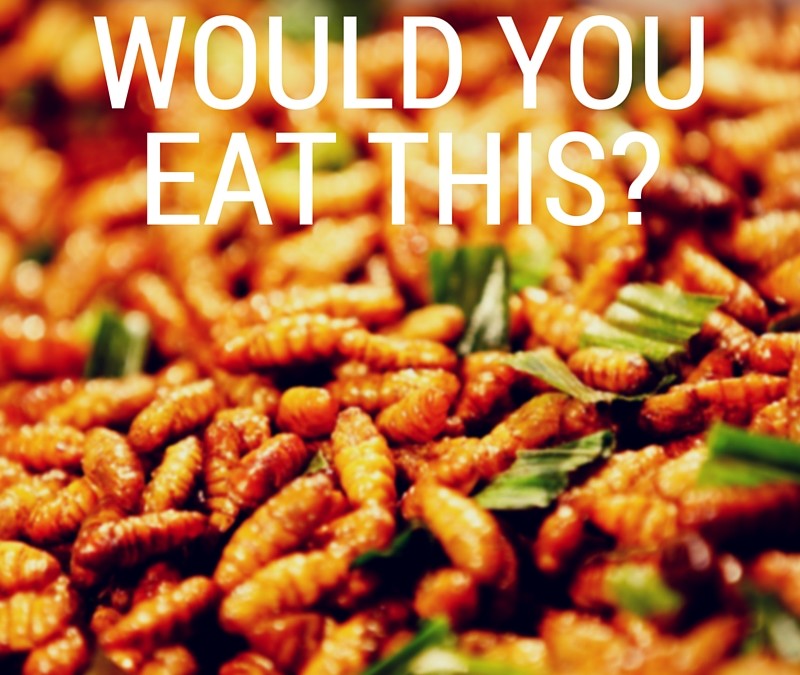Think about it: You’re looking for a healthy late-night snack and you reach into the cabinet and pull out a box. You open it up, pour a couple of snacks into your hand and pop them into your mouth. Mmm… satisfaction. Now imagine that your snack was a dried, salted caterpillar. Sound a little unappealing? Maybe. But bad for you, it’s certainly not.
2 million people around the world already indulge in insects as culinary treats, mostly citizens in Latin America, Africa, and Asia. And believe it or not, they may be coming to the US soon in various forms. But, don’t get squeamish yet about eating insects. They provide a lot of benefits, aside from being pretty darn healthy.
1. They’re an Excellent Source of Protein
First, let’s talk about nutrients. The benefits of eating insects can’t be stated without mentioning the health benefits that they offer. Take caterpillars for instance: they’re high in proteins, as well as amino acids, calcium, and essential fatty acids. In fact, many insects have higher percentage of proteins than many other more common protein sources that we consume today.
But let’s be honest: getting people to reconsider insects as food would take a good bit of work. The good news is that processes like grounding down insects into powder for their nutritional value and using it as a cooking aid or in the same way as a protein powder could be a realistic option and a way to get people to start viewing insects as a viable food source.
2 They’re an Affordable Food Source
This benefit can’t be ignored. The world’s population currently clocks in at 7 billion people and is continually growing. Humans need food, and they need cheap food that’s easy to produce and ship. Meat requires large spaces and has high capital requirements. Produce also requires lots of space (unless you’re utilizing rooftop gardens). With insects, you’re dealing with much smaller crops, which means less space is needed. Add this to less food needed to feed insects for growth and cheaper transportation costs from farms, and you’ve got a pretty strong argument for cultivating insects as a more dominant food source.
3. There’s a Huge Variety of Insects
If you’re worried about having a wide variety of protein-filled snacks at your fingertips, you can rest assured that the insect population will not let you down. There’s over 1,900 edible insects all across the world, in many different types of ecosystems. This means that not only is there a huge variety of insects to eat and experiment with in the kitchen, there’s a nearly unlimited opportunity to raise them or farm them in almost every type of environment.
4. They Cause Less Food-Borne Illness
Think back over the last 10 years. There’s been a number of foodborne illness outbreaks from xxx to xxx. This is due, in part, to the fact that many animals are so biologically similar to humans. One big benefit that insects have is that they are so biologically different from humans, they Insects are so biologically different, there’s less opportunity for them to spread and transmit disease. Although, there’s still more research that needs to be done to further explore what types of disease could be transmitted through insects.
5. Insects are Way More Eco-Friendly
It might seem ridiculous to say that insects can be eco-friendly, but it’s true. In fact, a surprising 18 percent of greenhouse gases are actually created by livestock and the farms where they are raised. There’s also less land and meal waste for insects, which means that less natural resources are needed to raise insects. Less resources used = a better environment.
There are a lot of surprising benefits from eating insects, many of which could help solve some of the world’s food shortage – and even food waste – problems. But changing the consumer mindset on insects wouldn’t be a small problem to solve. Let us know: would you ever consider eating insects or using insects in your cooking? Would you even be willing to try some? Share your thoughts in the comments!





